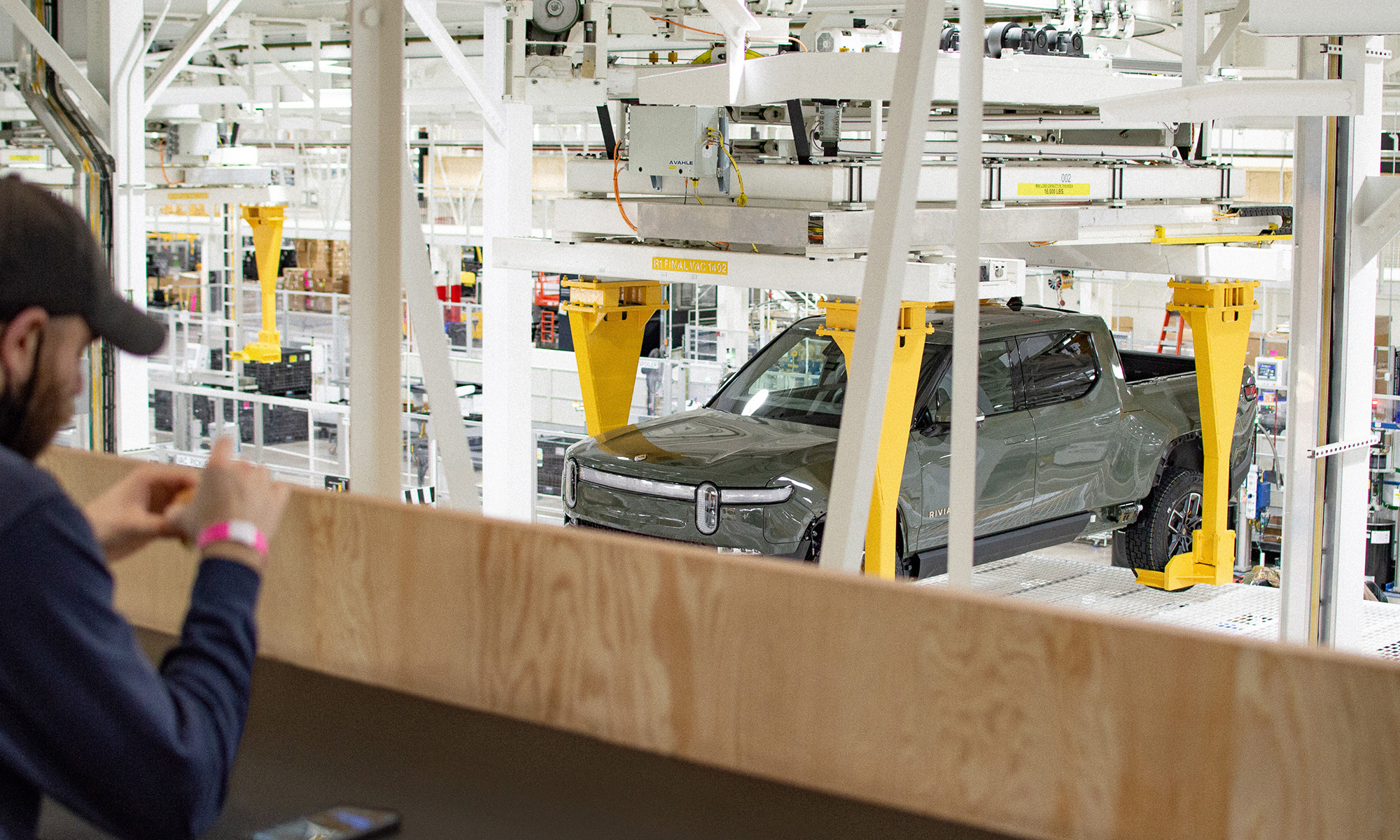Rivian (RIVN 3.42%) was introduced to investors with a bang: Its IPO was set at $78 per share, and the stock quickly zoomed to its all-time high of nearly $180. Since then, however, it's been a long and steady decline for the company that has faced supply chain issues, executive departures, and production shortfalls.
On the flip side, Rivian is flush with cash and its vehicles have been highly regarded across the industry, but Amazon's (AMZN +0.50%) nearly 18% stake in the company could pose a problem for investors in the future. Let's dig in.
Will Amazon pull a Ford?
One reason Rivian's stock was held lower last year was that Ford Motor Company (F 1.25%) unloaded nearly all of its 12% stake in the company throughout much of the year. Ford began divesting its stake and sold nearly 91 million shares, leaving itself with a 1.15% stake in Rivian.
The good news is that Ford is mostly in the rearview mirror; the bad news is that Amazon could be next.
Ford's sale of its large stake in Rivian isn't indicative that it doesn't believe in the electric-vehicle (EV) maker's future, but rather that the planned partnership didn't materialize and both opted to focus on their own interests.
The problem for Rivian investors is that Ford's decision to unload most of its 12% stake in Rivian created selling pressure for months that probably kept a lid on the stock price. Furthermore, for investors interested in buying shares of Rivian long-term, it created psychological pressure to wait on the sidelines until Ford was done selling.

NASDAQ: RIVN
Key Data Points
And now with Ford mostly out of the ownership picture, investors are faced with the potential that Amazon could do the same thing, except the online retailing juggernaut has an even larger stake, at nearly 18% of Rivian.
With Amazon and Rivian now discussing the possibility of ending their exclusive deal for electric vans, is it a sign the partnership is wobbling?
Exclusive no more?
Originally, Amazon placed an order for 100,000 electric delivery vans from Rivian, and the latter agreed to only sell those vans to the online retailer. But Amazon recently informed Rivian that its follow-up order would be only 10,000 vans in 2023, which was at the low end of its estimated range, sending the electric-van maker to the negotiating table seeking the option to sell to other companies.
On one hand, the end of the exclusive deal between Amazon and Rivian could help the latter expand its market and potential sales to new customers. On the other hand, if Amazon has less incentive to hold its large stake in the EV maker, it could create an even worse overhang on the stock than Ford previously created.
Amazon's stake in Rivian is worth around 0.3% of its total massive $1 trillion market capitalization, and it wouldn't be a reach to think that if the exclusive deal is no more, Amazon could sell its shares, move on, and have one less business partnership to think about.
For now it appears that Amazon is content to hold its shares, but its large ownership stake in Rivian will remain the elephant in the room.
Keep your eyes on the prize
There are plenty of reasons to be optimistic about Rivian's future. It's cranking up its production, albeit more slowly than investors would like, and its vehicles have been well received across the industry and with consumers.
The company had more than $12 billion in cash before raising another $1.3 billion to help fund the development of its R2 platform. It expects to be gross profit-positive in 2024, and its cost of revenue, gross profit, and operating profit are all moving in the right directions as production increases.
Even if Amazon does eventually begin selling shares, and it does create an overhang on the stock yet again, Rivian's long-term returns for investors will remain solid if the company's demand for vehicles is strong, EV sales continue to grow in the U.S. market, and production continues to accelerate and become less costly.
Investors would be wise to keep an eye on the partnership between Amazon and Rivian, as it could influence how rocky Rivian's 2023 becomes. Rivian will remain a risky, and speculative, yet highly intriguing, EV stock.







